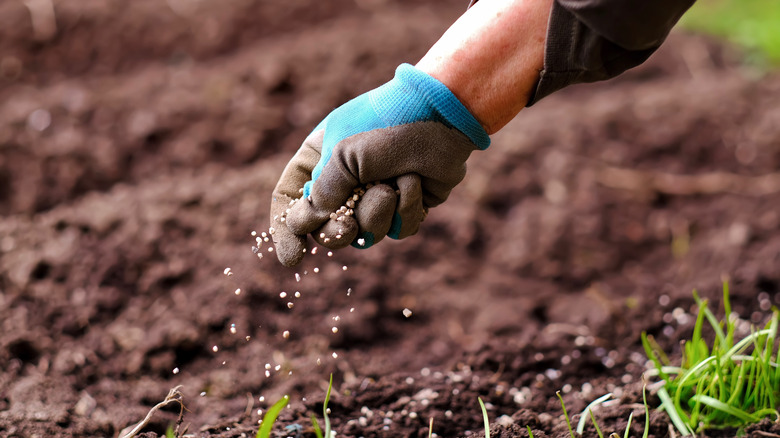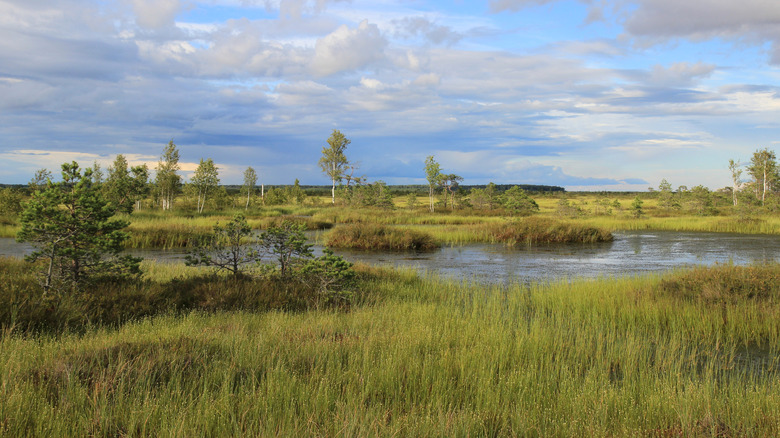New Research Reveals How The UK Could Boost Homegrown Produce By 40%
When it comes to food self-sufficiency, Britain is not exactly a shining exemplar. According to the BBC, the UK imports 45% of its vegetables, mostly from the European Union, and a whopping 84% of its fruit. Because higher transport costs often result in higher food prices for consumers, shares the International Monetary Fund, it comes as no surprise that a whopping 60% of people living in the U.K. are interested in growing food at home (via New Food Magazine). And, according to new research out of Britain, it's highly doable.
According to an article published by The Guardian, researchers out of Britain's Lancaster University have found that the U.K. could grow up to 40% of its own fruit and vegetables, about eight times what the area currently produces — all using urban and under-used spaces. In an era of rising food prices as well as widespread food shortages, it's news that's sure to be welcomed by many Brits.
Utilizing parks and playing fields to grow produce
According a separate article published by The Guardian in 2020, British interest in allotments — or areas of land that citizens can rent from their local governments or private owners, per Mantis – soared during the pandemic, with waiting lists as long as 18 months in some cases. Given rising food costs as well as a ballooning interest in home cooking (via Food Navigator), it makes sense that many are interested in becoming more self-sufficient. And according to the U.K.'s first nationwide study of urban growing potential, it's totally doable: by making use of public parks, playing fields, river banks, and other underutilized areas, Britain could increase domestic production of fruits and veggies by up to 40%, which could help improve people's diets as well as reduce carbon emissions (via The Guardian).
"This could be about communal activity — growing clubs, local societies, communal plots," Jess Davies, Lancaster University professor and the study's principle investigator, told The Guardian. "People engaged in growing have better diets, and healthier behaviors."
And, she explained, it's not a matter of creating additional large-scale agricultural projects, but rather putting small scraps of available land into use. "You don't want to convert more land to agriculture, as that drives biodiversity loss and climate change," Davies told The Guardian. "But we have shown that you don't need to: there is a lot of urban resource out there that is overlooked. We hope this research will spark conversations about the potential."

